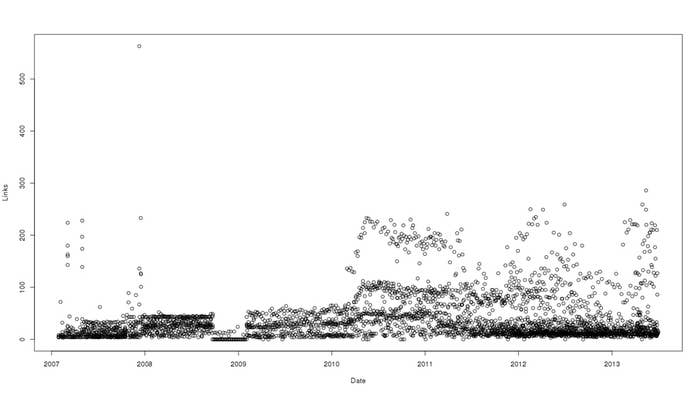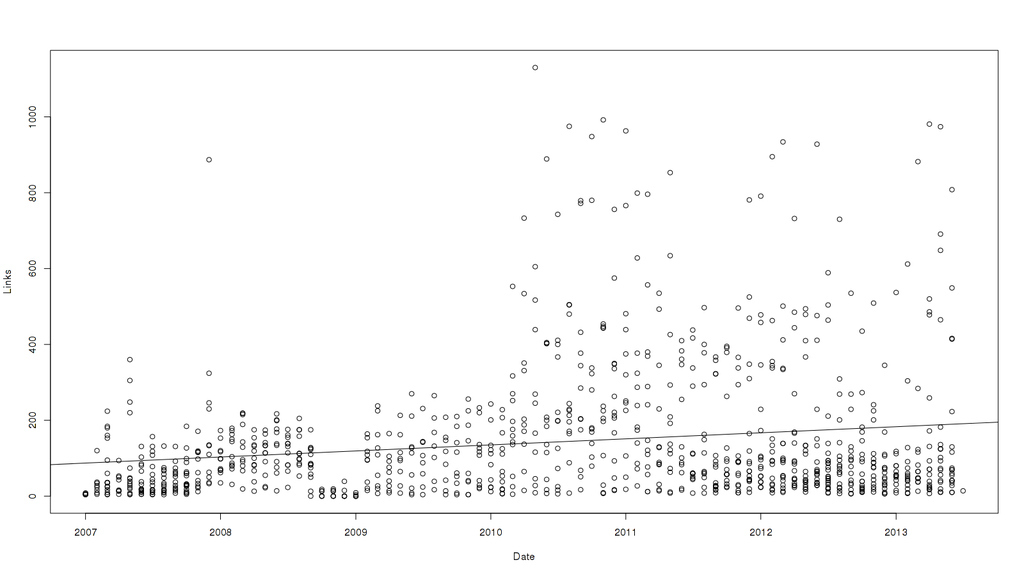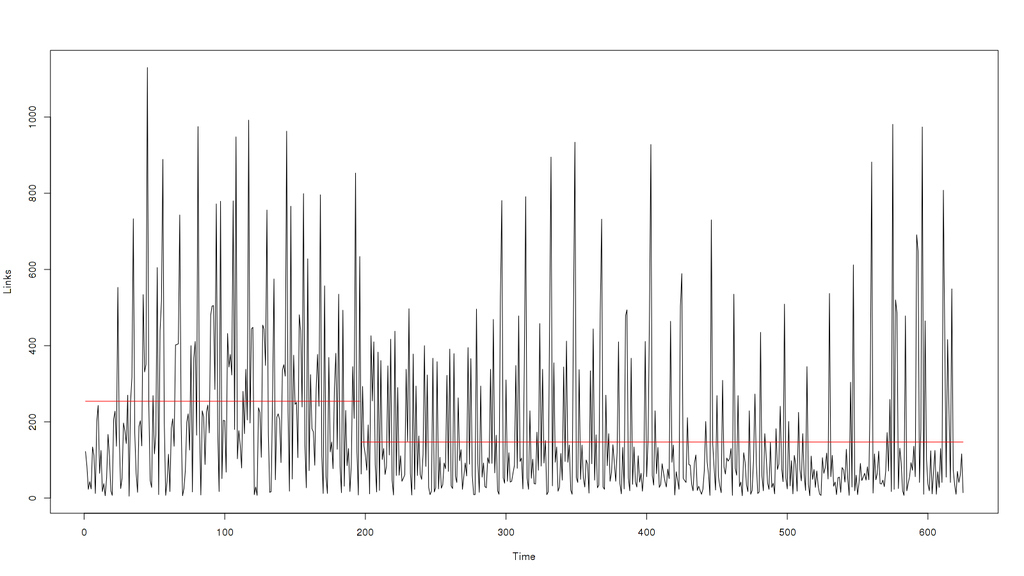
Google Alerts, which sends automatic notifications based off keywords, seems to be broken. Almost universally, users have complained that the emails come less often and usually contain fewer links.
Google has refused to shed light on the decline. Today, a Google spokesperson told BuzzFeed, "We're always working to improve our products — we'll continue making updates to Google Alerts to make it more useful for people." In other words, a polite non-answer.
In light of the Google Reader shutdown, it's fair to ask: Is Alerts doomed? Will the death be quick or slow? And if it is in decline, when did this start happening, and why?
To get to the bottom of the rumor, once and for all, researcher Gwern Branwen conducted empirical research based on his personal Google Alerts notifications between 2007 and 2013.
His findings: There wasn't any significant change — no gradual decrease as the search algorithms excluded more and more links as people had surmised. But in June 2011 there was indeed a significant drop.
Here's Branwen's explanation:
The number of links per email increased for a while, shooting up in mid-2010.

Then, every month, there was about tenth of a link less — a negligible change. "If someone says their alerts seem a little down, they may have been fooled by selective memory," writes Branwen.

But then, in June 2011, there was a serious decline — more than a third.
Bloggers noted the change in 2012, which was inaccurate, unless of course Google was rolling out the change and Branwen got hit before others. More likely, it just took people a while to notice.

"I was surprised to find such a precise, localized drop in my Alerts quantities," says Branwen. "I didn't expect to be able to say, 'In this month, results dropped by more than a third.'"
The decline was likely a onetime event, a positive sign that Alerts isn't being killed outright. His theory for what is behind the decline: the launch of Panda, an update to Google's search algorithms.
"It affected many websites and searches, had teething problems, reportedly boosted social networking sites (which I generally see very few of in my own alerts), and was rolled out globally in April 2011 — just in time to trigger a change in May/June," writes Branwen.
"Search remaining high-quality will always be a higher priority than Alerts, because Search is the dog that wags the tail."
It's still only a theory, but a plausible one.
"This is another example of how Google does not communicate with its users, makes changes unilaterally and invisibly, will degrade one service for another, more profitable service, and how users are helpless in the face of its technical supremacy," Branwen says. "Who else can do as good a job of spidering the internet for new content matching keywords?"
Yesterday, Matt Cuts, Google software engineer and head of Google's Webspam team, offered some insight in a comment on Hacker News in response to Branwen's findings. He explained, in the context of this post, why a different product had gained a reputation for being neglected.
"For a while, spammers were using data from Google Trends to find new phrases/topics to target for autogenerated spam," wrote Cutts, pointing readers to this StoptheHacker post as an example. "The new Google Trends UI is still useful for hot topics, but less useful for spammers."
Message received. If you have a question about why a Google product you use has changed, the answer is probably this: priorities.
